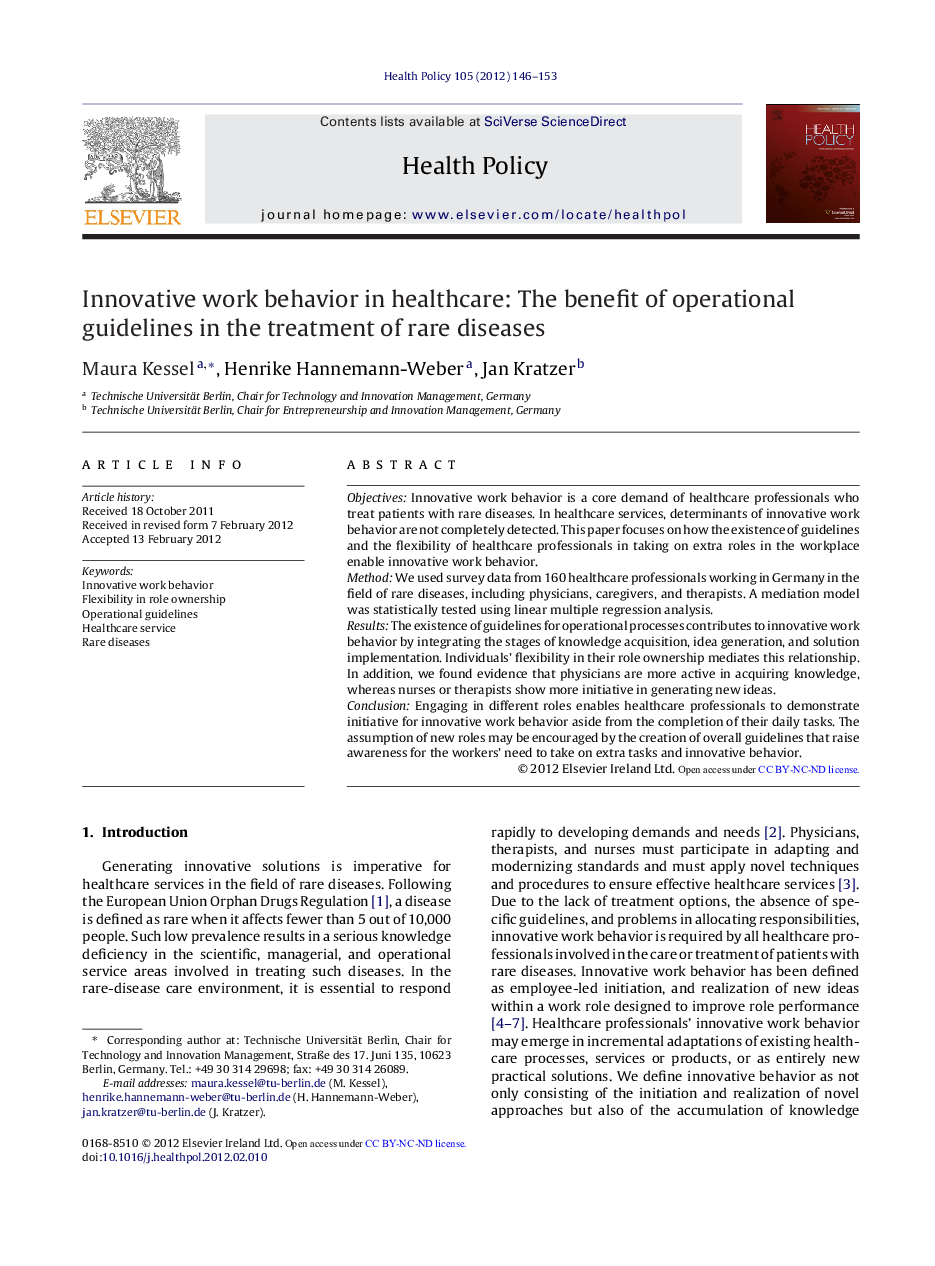| Article ID | Journal | Published Year | Pages | File Type |
|---|---|---|---|---|
| 6240045 | Health Policy | 2012 | 8 Pages |
ObjectivesInnovative work behavior is a core demand of healthcare professionals who treat patients with rare diseases. In healthcare services, determinants of innovative work behavior are not completely detected. This paper focuses on how the existence of guidelines and the flexibility of healthcare professionals in taking on extra roles in the workplace enable innovative work behavior.MethodWe used survey data from 160 healthcare professionals working in Germany in the field of rare diseases, including physicians, caregivers, and therapists. A mediation model was statistically tested using linear multiple regression analysis.ResultsThe existence of guidelines for operational processes contributes to innovative work behavior by integrating the stages of knowledge acquisition, idea generation, and solution implementation. Individuals' flexibility in their role ownership mediates this relationship. In addition, we found evidence that physicians are more active in acquiring knowledge, whereas nurses or therapists show more initiative in generating new ideas.ConclusionEngaging in different roles enables healthcare professionals to demonstrate initiative for innovative work behavior aside from the completion of their daily tasks. The assumption of new roles may be encouraged by the creation of overall guidelines that raise awareness for the workers' need to take on extra tasks and innovative behavior.
